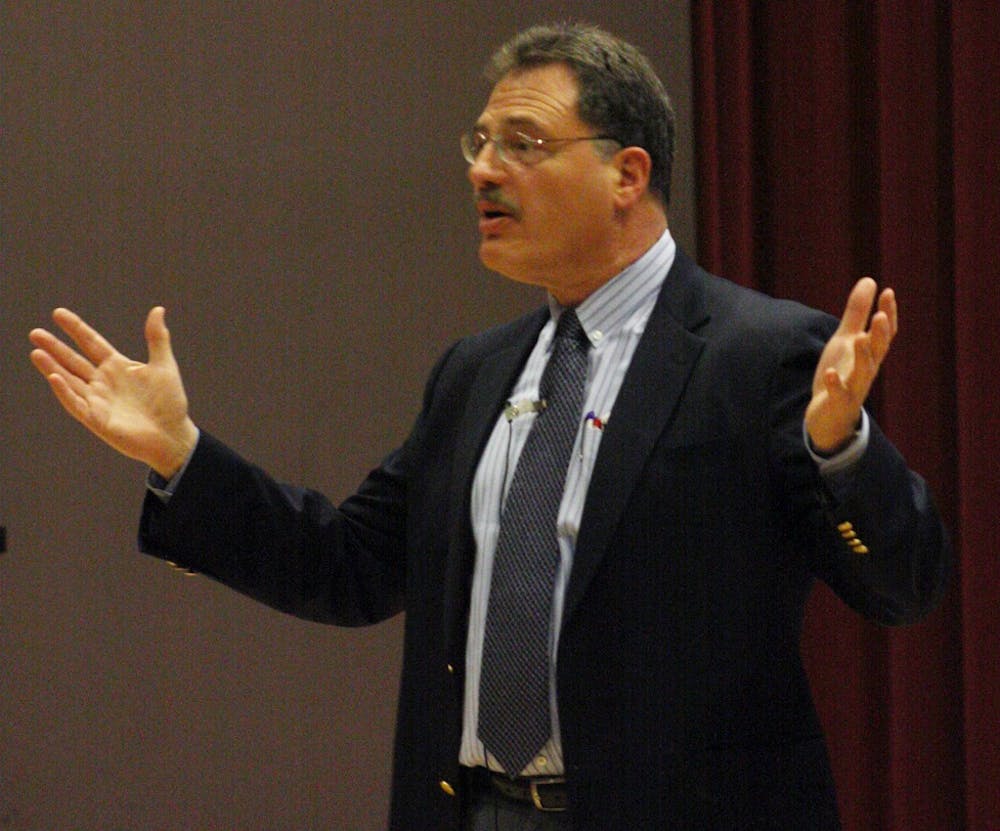Some democracies are failing and bad governance is to blame, said Larry Diamond, an expert in global affairs.
Diamond is a professor at Stanford who has consulted with the United Nations, the World Bank and the State Department.
He spoke Thursday to about 200 people at the Nelson Mandela auditorium of the FedEx Global Education Center.
Diamond said the percentage of countries around the world with democratic governments could be on the decline.
According to Diamond, 35 percent of the world’s countries had democracies in 1974, and 62.5 percent in 1999.
But by 2010, the number of democratic countries decreased slightly, signifying a plateau, he said.
“If you want two words, what I think the problem is it’s bad governance,” he said.
Diamond said that stable democracies rarely collapse, and unstable democracies fail because they cannot restrain abuse of power.
He said many established countries attempt to throw money at young democracies, hoping it will trickle down from the government and stimulate the economy.



